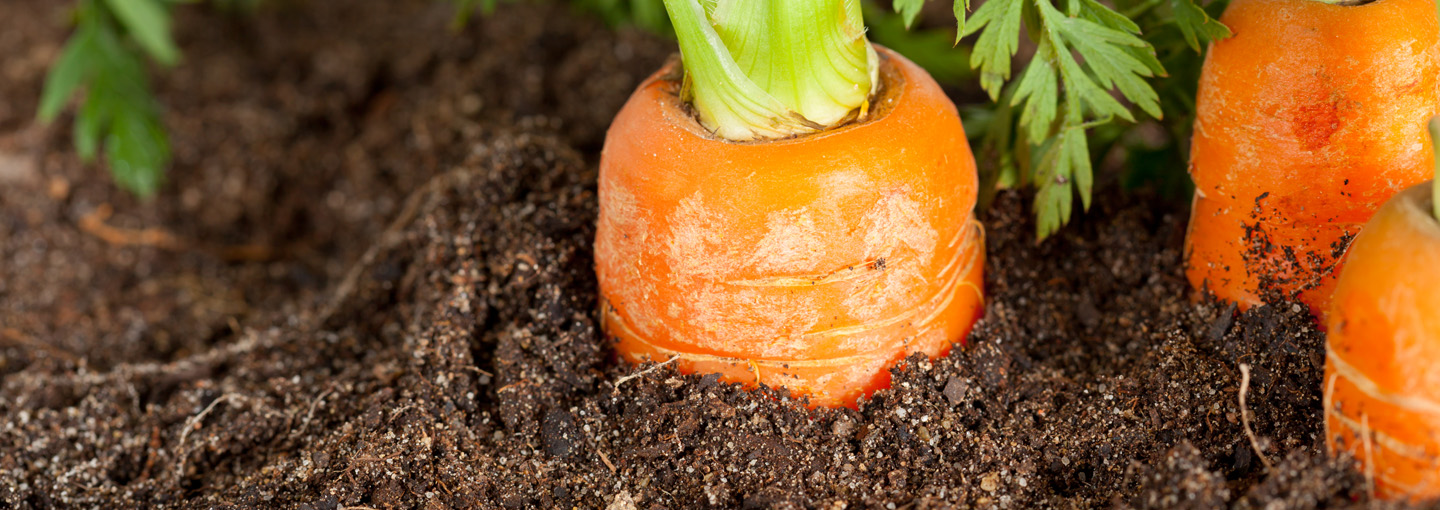
Carrots prevent development of bowel cancer
Chemicals from carrots reduce the development of cancerous cells by up to 83%. Researchers from SDU and OUH arrived at the sensational result during experiments on rats. The researchers are now working on testing the results on humans.
Bowel and rectal cancer are among the most common types of cancer in Denmark with around 5,000 new cases per year, but a new research experiment shows that carrots effectively prevent the spread of cancer in rats.
- The results are surprisingly unequivocal. They show that the natural compounds falcarinol and falcarindiol found in carrots are able to reduce the number of tumors in the rats' bowels by up to 83%. Our experiments also show that a similar effect can be attained through the daily consumption of 3-4 carrots, explains postdoc Morten Kobæk-Larsen from the Department of Clinical Research, SDU and Odense University Hospital.
This is the first time that falcarinol and falcarindiol have been proved to prevent cancer in mammals, and the results have now been published in the prestigious UK journal Food & Function.
Carrot smoothie
Professor Lars Porskjær Christensen from SDU Biotechnology is delighted that there is now proof that carrots are effective in preventing bowel cancer in rats. For more than 10 years he has suspected that this was the case but lacked the evidence to prove it.
- Since 2003, we have had results from laboratory experiments on human cells and animals which have clearly indicated that the chemicals falcarinol and falcarindiol can prevent the development of cancer, and it is a huge boost to finally have it confirmed, says Lars Porskjær Christensen.
The effective chemicals falcarinol and falcarindiol are also found in other related vegetables and herbs such as celeriac, celery, parsley and parsnips, as well as familiar medicinal plants such as ginseng roots.
- The results also bring a whole new perspective to our production of vegetables. Are we growing the right kinds of carrots, for example? Which types of carrots have the highest concentration of falcarinol and falcarindiol? We can also start thinking about producing food products such as juice or smoothies with a naturally high falcarinol and falcarindiol content, says Lars Porskjær Christensen.
From rats to humans
The researchers behind the study believe that the results can be transferred to humans. The next step is therefore to demonstrate the effect in humans, which will be groundbreaking in the prevention of this prevalent type of cancer.
- The results from the experiments on animals are so convincing that we are now ready to test the chemicals on humans in the form of carrots or carrot products, says Professor of Gastrointestinal Surgery at OUH, Gunnar Baatrup.
Gunnar Baatrup is also the leader of a research group at OUH which is working with the prevention of bowel cancer, and he will now work on starting up a clinical experiment in which his patients will eat carrots.
But before the future clinical experiment on humans gets underway, the researchers from OUH and SDU hope to be able to show which mechanism is behind the defence chemicals' ability to prevent bowel cancer.
- We have convincing results which show that the chemicals falcarinol and falcarindiol are effective in the prevention of bowel cancer, but we lack knowledge about the actual mechanisms that make the chemicals effective against cancer, says Morten Kobæk-Larsen.